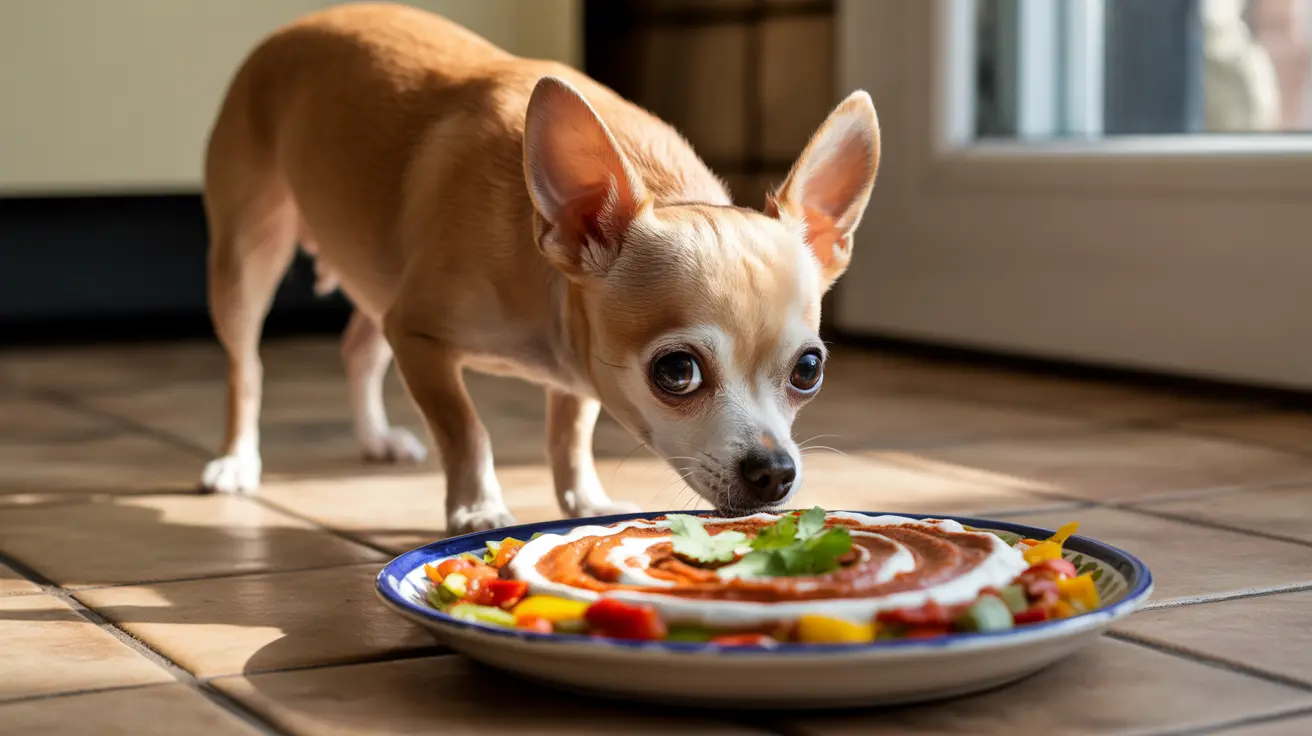As a pet owner, you might wonder if sharing your spicy food with your furry friend is safe. After all, some dogs seem genuinely interested in whatever their humans are eating. However, the answer to "can dogs eat spicy food" is a clear and resounding no. While your dog might appear eager to try that spicy wing or curry, spicy foods can cause significant discomfort and potential health issues for our canine companions.
Understanding why spicy foods are dangerous for dogs requires looking at their unique biology. Dogs have approximately 1,700 taste buds compared to humans' 9,000, meaning they experience flavors differently. However, they still have the same pain receptors that respond to capsaicin, the compound that makes spicy foods hot, and can experience intense discomfort without understanding the cause.
How Spicy Foods Affect Dogs
When dogs consume spicy foods, they experience immediate and potentially severe reactions. Unlike humans who might enjoy the sensation of spicy foods, dogs have no natural tolerance or appreciation for these flavors. The capsaicin in spicy foods triggers their pain receptors, leading to immediate discomfort and potential health complications.
Immediate Physical Reactions
Dogs who consume spicy foods often show several concerning symptoms:
- Excessive drooling and panting
- Pawing at their face and mouth
- Whining or showing signs of distress
- Drinking water excessively
- Vomiting or gagging
- Rubbing their face on the floor or furniture
Digestive System Impact
The effects of spicy foods on a dog's digestive system can be severe and include:
- Stomach pain and cramping
- Diarrhea or loose stools
- Severe gas and bloating
- Inflammation of the digestive tract
- Potential development of gastritis or pancreatitis
Long-term Health Concerns
Regular exposure to spicy foods can lead to serious health issues in dogs:
- Chronic digestive problems
- Damage to the digestive tract lining
- Increased risk of ulcers
- Development of food sensitivities
- Potential kidney issues due to dehydration
What to Do If Your Dog Eats Spicy Food
If your dog accidentally consumes spicy food, take these immediate steps:
- Remove any remaining spicy food
- Provide plenty of fresh water
- Offer small amounts of plain, unsweetened yogurt
- Monitor their behavior and symptoms
- Contact your veterinarian if symptoms are severe
Frequently Asked Questions
Can dogs eat spicy food without getting sick, and what are the risks?
No, dogs cannot safely eat spicy food. The risks include immediate discomfort, digestive issues, and potential long-term health problems. Even small amounts can cause significant distress and should be avoided entirely.
How can I help my dog recover if they accidentally eat something spicy?
Provide plenty of fresh water, offer plain yogurt to help neutralize the heat, and monitor them closely. If symptoms are severe or persist, contact your veterinarian immediately.
Why do dogs react so strongly to spicy foods when they don't taste them the same way as humans?
While dogs have fewer taste buds than humans, they still have the same pain receptors that respond to capsaicin. This means they experience the burning sensation without understanding or enjoying the flavor complexity that humans might appreciate.
What are the potential long-term health effects if I feed my dog spicy food occasionally?
Regular exposure to spicy foods can lead to chronic digestive issues, ulcers, inflammation of the digestive tract, and potential kidney problems due to dehydration. It's best to avoid spicy foods entirely.
Are there any non-toxic spices or seasonings that are safe for dogs to eat?
Some safe seasonings for dogs include small amounts of turmeric, ginger, or parsley. However, always consult with your veterinarian before adding any new seasonings to your dog's diet, and avoid anything spicy.
Conclusion
While it might be tempting to share your spicy foods with your dog, it's crucial to resist this urge. The potential risks and discomfort far outweigh any momentary pleasure your pet might experience. Instead, stick to dog-safe treats and foods specifically formulated for canine consumption to ensure your furry friend stays healthy and happy.






